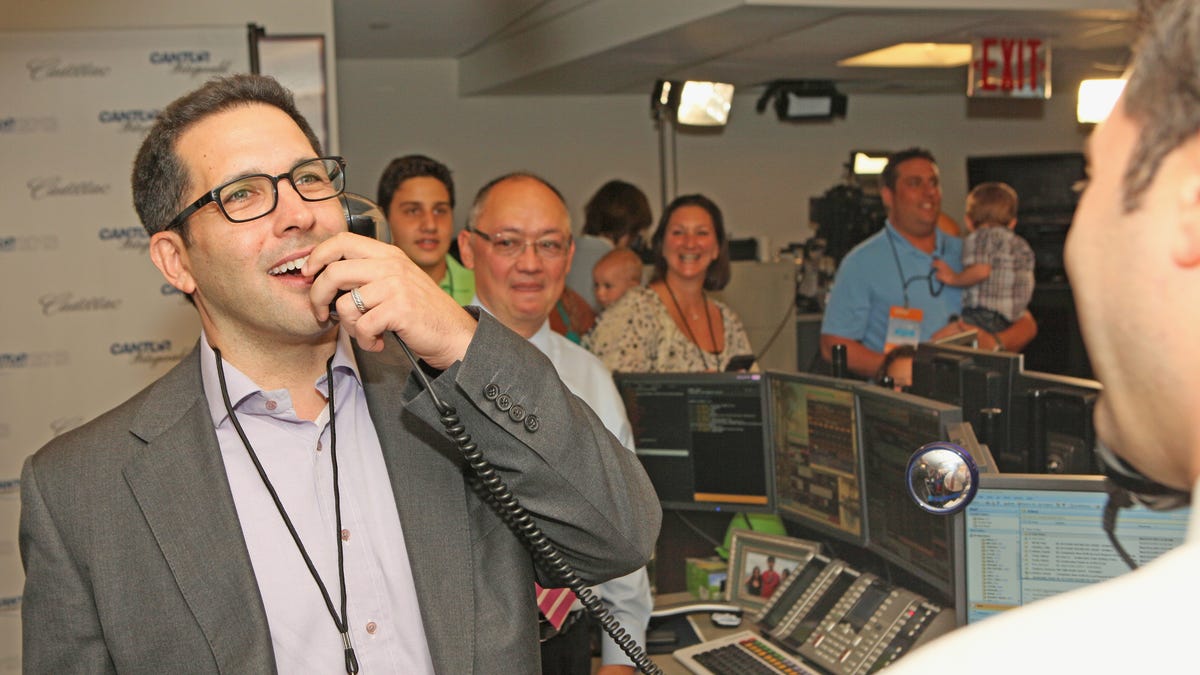Don’t be mad at Adam Schefter, he’s not really a journalist anymore

What a week. If you want to know how the sports sausage is made, a few notable emails made available through leaks and lawsuits have been particularly illuminating. One, where ESPN Insider Adam Schefter sends a story to former Washington team president Bruce Allen before publication for approval, is worth examining. The action runs counter to standard journalistic practice.
From the LA Times story:
“Please let me know if you see anything that should be added, changed, tweaked,” Schefter wrote. “Thanks, Mr. Editor, for that and the trust. Plan to file this to espn about 6 am ….”
ESPN responded:
“Without sharing all the specifics of the reporter’s process for a story from 10 years ago, we believe that nothing is more important to Adam and ESPN than providing fans the most accurate, fair and complete story.”
G/O Media may get a commission
The story was about the complicated negotiations during the 2011 CBA stalemate, but the story is quite lengthy, and sending it in its entirety, where Allen could see all the information reported before publication, is unusual.
The network also employed former Raiders coach Jon Gruden when he sent gleefully racist, homophobic and misogynistic emails to other NFL power-brokers.
These emails all make it clear how little distance there is between the sports networks and the NFL, a league that has dominated American sports coverage with the highest ratings and the fattest television contracts. ESPN pays the league about $2 billion a year for a package that includes Monday Night Football.
What Schefter does is incredibly important for ESPN, but it isn’t always traditional journalism.
There are excellent journalists and editors who still work at ESPN, but the network has scaled back the prestige journalism it was once famous for, shuttering ESPN The Magazine and Sports Reporters, and reducing the size and scope of the venerable Outside the Lines.
What has filled the space is commentary and access journalism, neither of which is threatening to its broadcast partners.
ESPN is, in many ways, the hype man before a prize fight, getting you ready for the main event. Given the rise of the legal sports betting market, reporting out of teams and the kind of information trading that Schefter does is more lucrative than ever.
There used to be a clear line between what was acceptable for reporters to endorse and invest in, but ESPN seems to have changed its standards. Schefter has invested in Boom Entertainment, which creates online gambling apps. Patriots owner Bob Kraft is another investor. This is more of an ethical issue for the network, even if it doesn’t have “Mr. Editor” attached to it.
Schefter isn’t so much an insider as he is a liaison. He has broken massive news, but he doesn’t do investigative reporting on every piece of information he gets. He can’t afford to alienate league sources, and he needs all 32 NFL teams behind him if he wants to continue to break news across the league. Full disclosure, Schefter has spoken twice to students I’ve taught, and been transparent about his job and what it takes to do it. He comes from a traditional reporting background, but he has essentially created a new job description.
As much as a journalist, Schefter trades information like the great New York gossip columnists. Who was seen where? What information can be traded for access?

What was worse was the doubling down on the practice from fellow ESPN reporter Darren Rovell. He tweeted: “Give me a break. While it’s not exactly the best of journalism practices, we’ve all done this in the name of accuracy.” Rovell has since deleted the tweet, but here’s a screenshot of it (l.).
It’s one thing to note that this is an exception, as ESPN did in its statement, another to claim that it’s something all journalists do.
The truth is, Schefter’s email makes a good headline, but it doesn’t get at the same systemic rot that Gruden’s does.
Gruden’s bigoted emails and the acceptance of the ideas he expressed keep people from getting jobs in football and sports media, make it challenging for players to come out of the closet and have contributed to workplace harassment by trading topless photos of employees.
It’s also notable whose emails have not been released. This Schefter email is embarrassing but it’s also a distraction. The NFL needs to make Dan Snyder’s emails public given the formal investigation into unacceptable workplace practices, and ESPN needs to take a look at the VPs and producers in the NFL group to see if Gruden’s sentiments were expressed internally.
Because despite everything, it’s far more likely that Gruden would come up in a discussion about a broadcast role than anyone in a group he denigrated.
It’s the emails that haven’t been released yet, that the NFL is holding onto, that should give us all pause. By protecting the Washington Football Team ownership group, the NFL insulated the decision makers from accountability. Without that sunlight, the league is just perpetuating the bias, and ESPN won’t be broadcasting that story.
For all the latest Sports News Click Here

